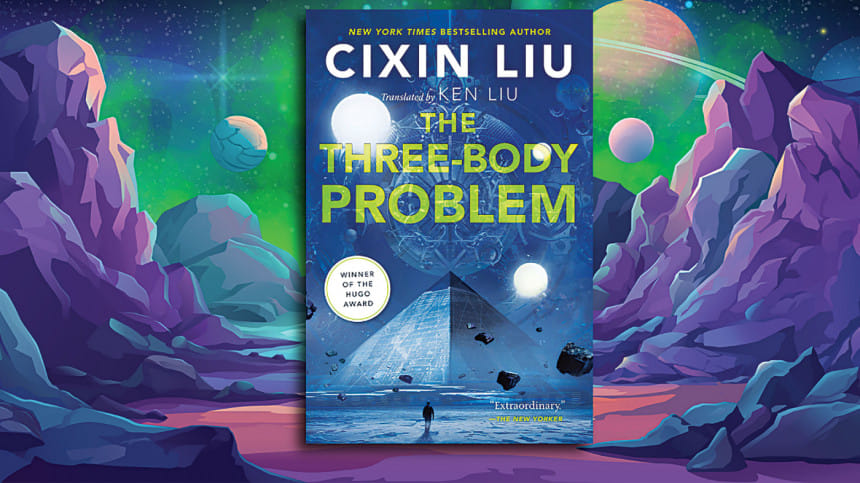Beyond science and scope: ‘The Three-Body Problem’

The Three-Body Problem is the first book in the Remembrance of Earth's Past (2006) trilogy by Cixin Liu, a renowned Chinese author. It starts off during the Cultural Revolution in China, where a young astrophysicist, Ye Wenjie, witnesses her father's brutal death at the hands of the Red Guards. Shattered by this event, she ends up joining a secret military project to establish contact with alien civilisations. Fast forward to modern-day Beijing, we meet Wang Miao, a nanotech researcher who gets roped into a mind-bending virtual reality game that seems to be linked to these extraterrestrial encounters.
Perhaps the most impressive aspect of The Three-Body Problem is its sheer world-building prowess. From the moment you're introduced to the chaotic and unpredictable world of Trisolaris, you can't help but be awestruck by the level of detail and thought that Cixin Liu has poured into crafting this alien civilisation. Every aspect of Trisolaran society, from their unique method of hibernation to their intricate system of mathematics and physics, is meticulously constructed and grounded in real scientific principles. It's a testament to the author's background in engineering and his deep fascination with the natural world.
The book has a unique way of dealing with the big questions such as "Are we truly alone in this vast expanse of the universe?" and "If there is intelligent life out there, how would they perceive us, and more importantly, how would we perceive them?"
It's this genius mix that really sets this book apart from the run-of-the-mill sci-fi fare. Cixin Liu juggles these disparate elements, creating a rich tapestry that keeps you constantly engaged and guessing what's coming next. Just when you think you've got a handle on the science, the author throws in a curveball from the historical or mystery realms, keeping you on your toes and ensuring that the story never feels one-dimensional or predictable.
There were, however, moments when the scientific exposition got a bit dense for me, and I found myself rereading passages to fully grasp the concepts. But to me, that's also part of the charm of The Three-Body Problem. It's a book that demands your full attention and challenges you to think beyond the conventional boundaries of science fiction.
Another minor gripe I had seen in many readers was with the characterisation. While the central characters like Wang Miao and Ye Wenjie were well-developed, some of the supporting cast felt a bit one-dimensional. I, however, find that by not over-developing every single character, Cixin Liu leaves room for us to project our own thoughts, feelings, and interpretations onto these individuals. In a genre that pushes the boundaries of technology and scientific speculation, having somewhat blank canvases as characters invites us to envision how humans (or alien beings) might behave in such extraordinary circumstances.
The book has a unique way of dealing with the big questions such as "Are we truly alone in this vast expanse of the universe?" and "If there is intelligent life out there, how would they perceive us, and more importantly, how would we perceive them?" Through the lens of the Revolution, Cixin Liu offers a blazing perspective on the matters of suppressed ideas and how civilised nations are created and destroyed.
By the time you reach the end of The Three-Body Problem, you can't help but feel a sense of awe at the sheer scope and ambition of Cixin Liu's creation. It's a world that will linger in your mind long after you've turned the final page, inviting you to ponder the deepest mysteries of the universe and our place within it.
Kazi Raidah Afia Nusaiba is a contributor at The Daily Star and a student at Independent University, Bangladesh (IUB).

 For all latest news, follow The Daily Star's Google News channel.
For all latest news, follow The Daily Star's Google News channel. 







Comments